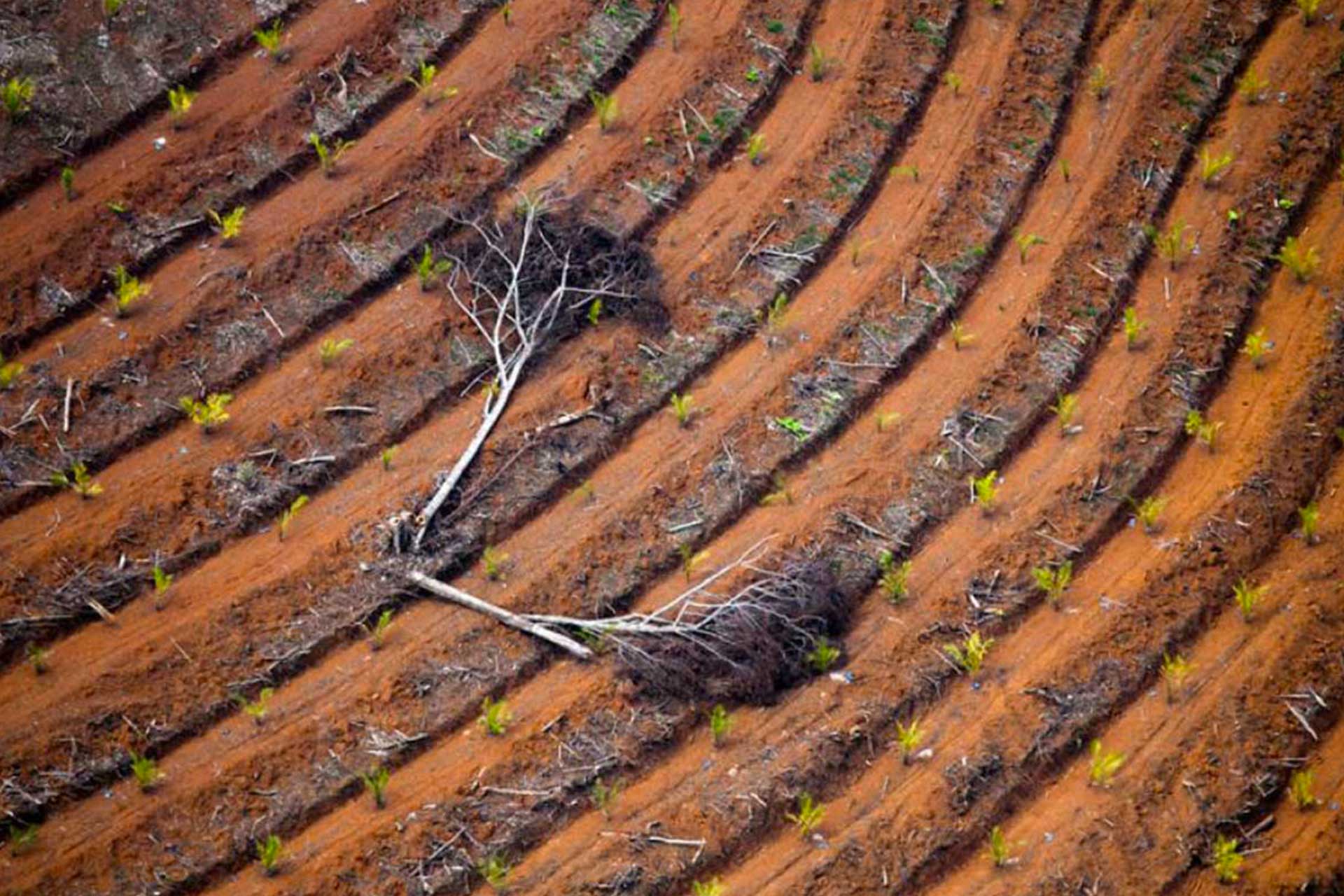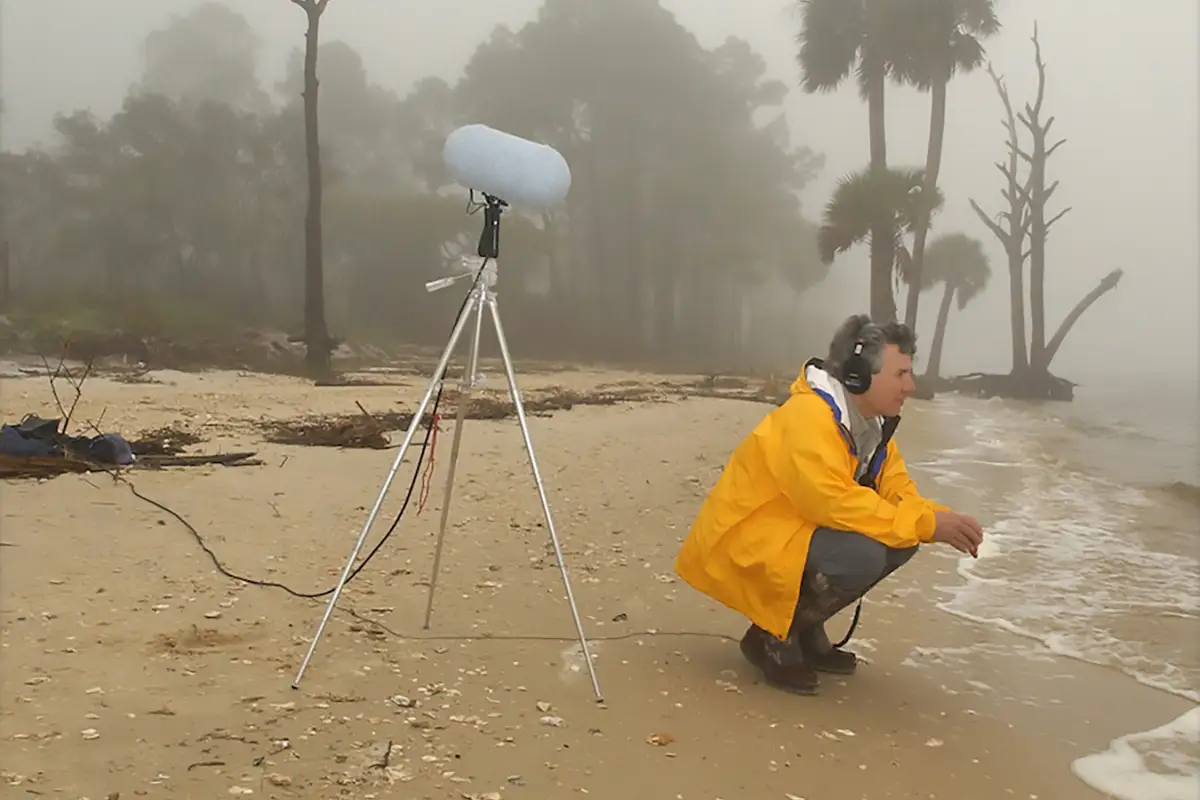The palm oil alternative benefits the environment and the animals that live in the rainforest; it helps out humans who would otherwise be impacted
Palm oil: a story of deforestation, pollution, and a march toward extinction
The oil palm product, whose growing, harvesting, refining, and sale forms a $61 billion global industry, is found in nearly half of all items on market shelves from laundry soap to shampoo, ice cream, and to ink. One tree of palm oil can produce 40 kg of oil every year for 25 years. No other vegetable – corn or coconut – can produce as much oil on as little land, using few pesticides or fertilizers. In practice, the story of palm oil is one of deforestation, pollution, and a march toward extinction.
Oil palms grow in tropical climates in a narrow band around the equator, with Malaysia and Indonesia producing 85 percent of the world’s supply. To clear land for the plantations based on the agricultural production of palm oil, some producers burn sensitive rainforest and peatland, often illegally.
Burning these lands can release 0,5 to 1,5 billion tons of greenhouse gases into the atmosphere each year. Deforestation removes many of the trees that would take up those very gases, and contributes to climate change, desertification, and erosion. With the destruction of habitat comes the loss of species. Animals particularly affected by the clearing of rainforests for palm oil include the endangered orangutan, pygmy elephant, and Sumatran rhino.
An alternative to agriculture
Finding a sustainable and non-destructive alternative to palm oil requires meeting a few criteria: ensuring the feasibility of palm oil in the specific application, and cost-effective production to be competitive with palm oil. Any alternative, to be viable, needs to be less destructive (resulting in less pollution), perform and be efficient, while meeting cost parameters.
Sometimes, another vegetable oil will do the trick, and sometimes it won’t, as all oils have their properties. The answer is to move the production of palm oil out of the field and into the lab, according to C16 Biosciences, a New York-based company founded in 2017, to tackle the problem palm oil production causes around the world.
C16’s completely new method of production
Rather than replacing one crop with another, such as oil palms with soybeans, corn or coconuts, which would still require the clearing of land for agriculture, C16 suggests a completely new method of production – using biology and manufacturing to produce a sustainable product that does not require deforestation, and meeting the needs of consumers and brands.
«On a basic level, consumers want to buy products that they love without having to worry if it is good for the planet. ‘If I buy this, am I contributing directly to climate change?’ I do not want to go to a store and have to think about that or even research to answer that question», says Shara Ticku, co-founder and chief executive officer of C16 Biosciences.
How C16 Works
Though C16 has innovated a palm oil alternative, it uses an age-old process to do so: fermentation. The process that uses yeast to make beer, sourdough bread, and insulin also results in a cost-effective palm oil alternative. «The number of different strains of yeast that we have identified and understood at a genetic level has increased tremendously over the last few decades. There are new applications for what we can produce using those microorganisms. The last century was the century of chemistry, and now we are shifting to the age of biology as a manufacturing platform», Ticku says. «It means that we are switching from an agricultural method of production which relies on monoculture crops to a bio-manufacturing production that essentially looks like a brewery».
C16 is keeping costs down to feed the yeast it uses with feedstocks upcycled from other production processes, meaning there is no need to plant fresh crops of hay or oats. The company also chose to work with a yeast that could metabolize a wide range of feedstocks to ensure production would not be limited to one area of the world. Whereas feedstocks in Asia might differ from those in Europe, the yeast can consume many different kinds, producing, in the end, a similar product around the world.
Solving Palm Oil Problems
There is a demand for the product, as the market for edible oils is expected to be US$1 trillion by 2050. As demand for palm oil has grown over the last 50 years, growers have looked to increase supply. Ten years ago, major players in the palm oil industry acknowledged the issues surrounding palm oil and committed to dealing with these problems through a scheme to certify certain products or producers using or producing sustainable palm oil. The effort has proven nearly impossible, like supply chains, from plantations to refineries to traders, and ultimately consumers can be long, convoluted, and opaque.
This makes tracing palm oil difficult, and this is one of the problems C16 aims to solve with its bio-manufactured alternative. Producing the alternative product in a dedicated facility not only allows the final product to be traced back to a single point, but it also allows for improved quality control, as it goes through all manufacturing processes in the same place. This will only gain momentum as the demand for palm oil or a viable alternative grows. Ticku noted that plant-based meat alternatives rely on vegetable oils for the proper mouthfeel, and the meat-alternative industry is growing.
Palm oil alternative: a benefit for the environment and the animals in the rainforest
It helps out humans who would otherwise be impacted. Some complaints replacing palm oil with a manufactured alternative will result in a loss of jobs that have pulled thousands out of poverty. But that is not necessarily the case, Ticku says, pointing to a recent Associated Press article that exposed human rights abuses rampant in the palm oil labor industry.
Because the fermentation tanks that produce the alternative do not rely on nature for successful production, as the oil palms do to grow, the oil manufacturing does not have to be done in a certain part of the world. When the alternative becomes widespread, Ticku hopes that it will be able to provide better jobs worldwide.
«We are a mission-driven company. Our mission is not to take jobs away from people to stop deforestation. The jobs that have been created are arguably not good, and in some cases inhumane jobs, and that is a problem just as much as burning the forest. One of the things we hope to do is shift to creating better jobs», Ticku says.
Future perpectives for C16 Biosciences
C16 plans to launch the product within the coming year for use at first in personal care products. Ticku notes that there is a large demand from both consumers and brands to have safe, sustainable ingredients in their personal care products, including those ranging from soaps and shampoos to lotions and makeup.
«From my conversations with people in the personal care space, clean beauty means ‹good for me, good for the planet›, which is to say ‘safe for me, safe for the plane’›. I think that is a good overarching principle for thinking about products that we are making and that people want to buy. Oils which are produced using deforestation are quite clearly not good for the planet or humans, and that is the problem that we are trying to solve in this space», Ticku says. «We are building a palm oil alternative because palm oil writ large is the deforestation driver. We are starting with personal care because we see demand».
Working with partners to expand the use of the product
Eventually, C16 will roll out its product to other markets and the company is working with partners to expand the use of the product to the food and home care markets. Much of the demand for sustainable ingredients that do not harm the environment or devastate the habitat of various species has been driven by consumers, Ticku says. Consumers are becoming aware of the ingredients in their personal care products and are often launching their products instead of relying on big-name brands to fulfill their needs. «Is palm oil, clean beauty, and sustainability something that people are clamoring for? Yes», Ticku says.
C16 Biosciences
A biotechnology firm that uses microbiology to brew sustainable alternatives to palm oil.





















